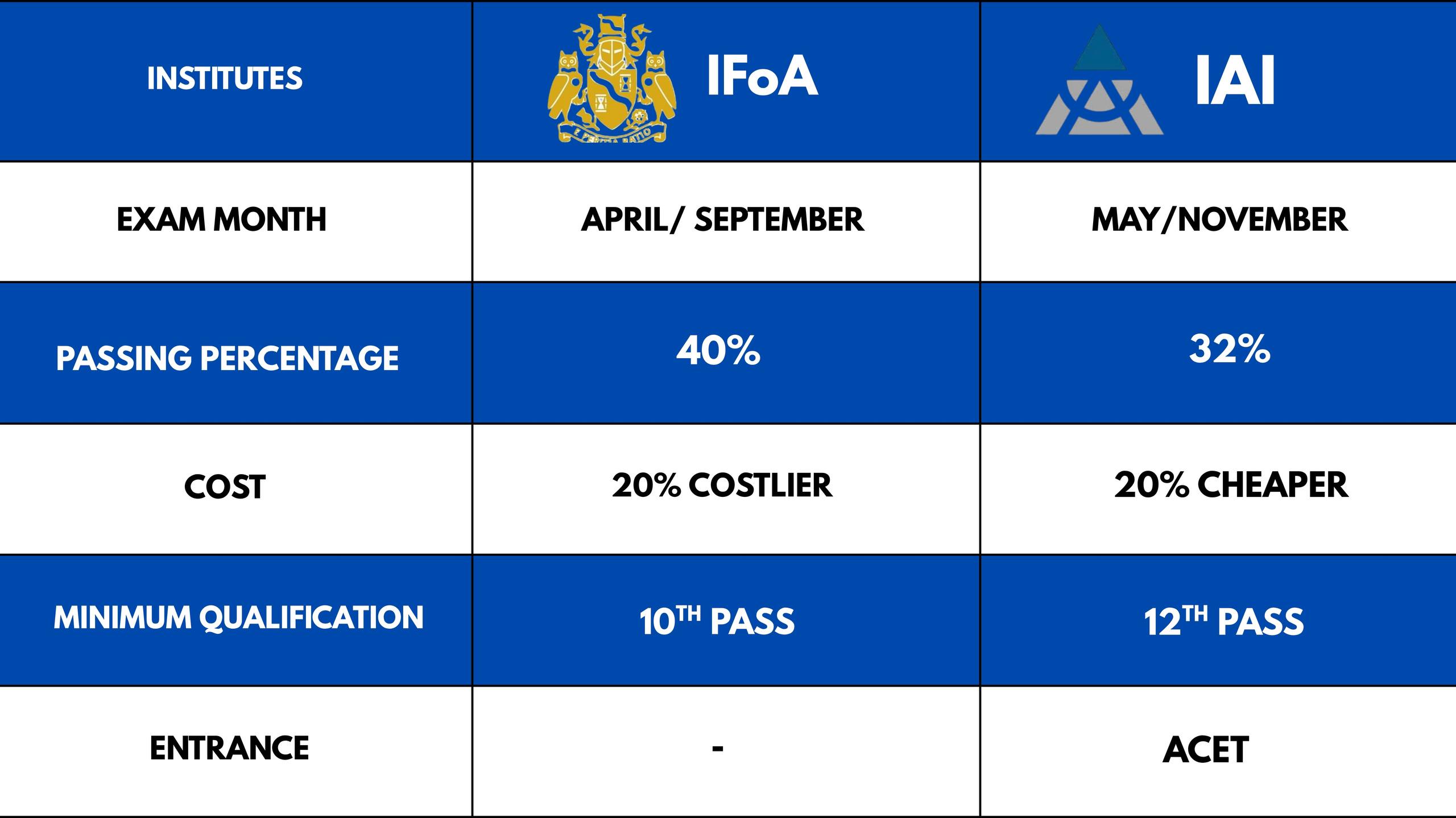

Frequently Asked Question
Actuarial science is a field that uses mathematics and statistics to
measure, manage, and mitigate financial risk and uncertainty.
Actuaries typically work in insurance, pensions, and finance, helping
companies predict and plan for potential future events.
Click Here for the Reel👇
What is actuarial science? in 60 seconds
Click Here for the Reel👇
What is actuarial science? in 60 seconds
a. Institute and Faculty of Actuaries (IFoA):
i.
Eligibility: Start
right after 10th standard.
ii.
Requirement: Completion of a basic math course taught by “The Actuarial Academy” (For Students in 10/11/12th Std)
b.
Institute of Actuaries of India (IAI):
i.
Eligibility: Must
be 12th pass
ii.
Requirement: Clear
the ACET examination
c. Qualification Requirements:
i.
Complete all 13 papers.
ii.
Accumulate 3 years of work experience to become a qualified actuary.
Like every professional degree actuarial science also requires the students to study rigorously for the actuarial subjects. It is definitely very rewarding for those who enjoy problem-solving and analytical thinking.
Check out our reel to know 👇
Yes, it is necessary to pursue a graduation program alongside
actuarial science.
A strong background in mathematics, particularly in algebra and
statistics, is essential. A benchmark for those who want to start
their actuarial journey can be around
80+ marks in mathematics in either your 10th or 12th
grade.
It typically takes 4–6 years to become a fully qualified actuary,
depending on the individual’s pace in passing exams and gaining
relevant work experience. Many actuaries work full-time while
completing their exams.
A student should consider a graduation course that requires minimal
college attendance and is similar to an actuarial science course, such
as a Bachelor of Financial Markets (BFM) or a Bachelor of Commerce
(BCom). Additionally, a student with a science background might opt
for a Bachelor of Science in Statistics (BSc Stats).
Check out our Reel for a brief overview 👇
Which graduation degree to choose?
Check out our Reel for a brief overview 👇
Which graduation degree to choose?
Many students secure entry-level actuarial positions after passing 2–3
exams. Employers often value exam progress and relevant internships
when hiring.
Actuaries work in various sectors including insurance companies (life,
health, property, and general), pension funds, consulting firms,
government agencies, and investment firms. They may also work in
non-traditional fields like financial investment and risk management.
To become an actuary, you’ll need a blend of strong mathematical and
statistical skills, analytical thinking, problem-solving abilities,
and proficiency in programming languages like R. Good communication
skills are also essential for explaining complex concepts to
non-experts. If you’re concerned about acquiring these skills, don’t
worry—
The Actuarial Academy is here to help you develop all
the necessary skills required to become an Actuary!!!
Anyone with a strong interest in mathematics, statistics, and finance
can pursue actuarial science. It is particularly suited for those who
enjoy solving mathematical questions.
Actuarial students often enjoy a good work-life balance, although they
do need to prepare for actuarial exams while working. Many employers
support their employees by offering study leave and financial
assistance for exam fees, making it easier to manage both work and
study commitments.
If you stop pursuing actuarial science after completing a few exams,
you still possess valuable mathematical and analytical skills that are
transferable to other careers in finance, data analysis, risk
management, and consulting. Many of these skills are in high demand
across various industries.
In order to know better, book your career counselling session now:
Contact Us
Contact Us
